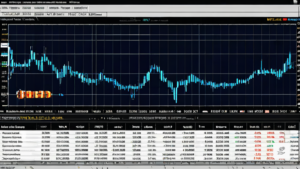Mastering the Art of Trading: The Psychology, Mentality, and Mindset of Successful Traders

Understanding the Core of Trading Psychology
The psychology of traders plays a pivotal role in determining their success in the medium- and long-term. It delves into the emotional and mental state that governs a trader’s journey in the financial markets. Often overlooked, trading psychology is a complex concept comprising various behavioral traits and character aspects.
At its essence, trading psychology is the driving force behind trading decisions and reflects a trader’s profile, motivations, and how fear and greed influence behavior. It encompasses vital factors like emotional intelligence, mindset, discipline, and the ability to overcome cognitive biases.
In essence, trading psychology is the ability to maintain a clear and stable state of mind irrespective of market conditions or external factors, ensuring traders can remain rational and objective even in challenging situations.
The Significance of Trading Psychology
Renowned trading professionals emphasize the critical role of psychology in trading success. While technical analysis and market knowledge are crucial, managing one’s psychology is equally if not more important. In high-stress situations, trading psychology can be the deciding factor between success and failure in a trade.
Traders with poor psychology are prone to making impulsive decisions, deviating from their trading plans, and falling into traps of greed or fear. Maintaining a stable trading psychology is vital to ensure rationality, adherence to strategy, and long-term success in the markets.
Emotional Intelligence in Trading Psychology
Emotional intelligence, the ability to understand and manage emotions, plays a crucial role in navigating the turbulent waters of trading. It encompasses self-awareness, self-regulation, motivation, empathy, and social skills, contributing to better decision-making and interpersonal relationships.
Recognizing and responding to emotions is essential in trading. Traders with high emotional intelligence can control their emotions, make informed decisions, and navigate market volatility effectively. Understanding market sentiments and emotions can significantly enhance trading performance.
Strategies for Enhancing Emotional Intelligence in Trading
Improving emotional intelligence is a gradual process that requires self-awareness and acceptance of all emotions. Strategies include practicing self-awareness, accepting emotions, understanding lack of control, treating situations as lessons, building feedback loops, and avoiding comparisons with others.
By honing emotional intelligence, traders can make better decisions, manage stress effectively, and navigate market dynamics with clarity and composure.
Developing a Winning Mindset for Trading Success
A winning mindset is a critical component of successful trading. Traits like acceptance, discipline, motivation, self-improvement, adaptability, and flexibility shape a trader’s approach to the markets. Overcoming common mindset pitfalls like greed, fear, overconfidence, and indecisiveness is key to sustained success.
Common Mindset Pitfalls to Overcome
Traders must steer clear of pitfalls like greed, fear, recklessness, overconfidence, stubbornness, lack of dedication, and indecisiveness to avoid self-sabotage and enhance their trading performance.
By developing a winning mindset and avoiding common pitfalls, traders can cultivate resilience, discipline, and a growth-oriented approach to trading.
Strategies for Cultivating a Winning Mindset
Effective strategies for building a winning mindset include learning to let go, striving for continuous improvement, establishing a routine, learning from mistakes, staying neutral, being adaptable, setting clear goals, and keeping ego in check.
By adopting a winning mindset and applying sound strategies, traders can enhance their decision-making, adapt to changing market conditions, and achieve consistent growth in their trading journey.
Mastering Trading Discipline for Long-Term Success
Discipline is a cornerstone of successful trading, ensuring traders adhere to their rules and strategies consistently. Overcoming emotion-driven decisions and sticking to a well-defined plan is crucial for long-term profitability.
The Role of Discipline in Trading Psychology
Discipline helps traders stay focused, avoid impulsive decisions, and follow their trading plans diligently. It acts as a shield against irrational choices and emotional trading, fostering a controlled and objective approach to the markets.
By prioritizing discipline over profits and maintaining a structured approach to trading, traders can enhance their performance and ensure consistent success over time.
Strategies for Building Trading Discipline
Developing trading discipline involves setting clear rules, following them rigorously, and holding oneself accountable for deviations. By establishing a disciplined mindset and adhering to a well-defined strategy, traders can mitigate risks and elevate their long-term trading performance.
The impact of discipline on long-term trading success is profound, with disciplined traders outperforming their counterparts and achieving sustainable growth in the markets.




